|
Lately I have encountered some confusion around self-love, arrogance, conceit and unrealistic self images. Self-love bears no relation to the latter three. Self-love is a measure of health itself, and the other three are the psyche bent out of shape.
The Buddha had something to say about the kind of loving kindness that is self-love: "You yourself, as much as anybody in the entire universe, deserve your love and affection." And Jesus reminded us, "Love your neighbour as yourself". Tacit in that reminder is that we do love and respect ourselves. As long as we are breathing we are 'works in progress', so I invite you to check your progress in self-love and self-respect with this quick quiz for parents and teachers alike. Your mouse won't interact with this quiz I'm sorry (that is a bit beyond my technical ability at this time). Click here if you want to print off a hard copy.
0 Comments
Be the best you can
The ‘new age’ literature, which many people scoff at, makes an important point when it says that the best gift that we can give this planet is to Be The Best We Can. The assumption in that advice is that you and I have it in us to grow, and to become more skilled as we grow. This is another way of saying that as adults, we have the capability to change the habits of our behaviour, we can change our ‘default settings’. And as we change our behaviours becoming more skilled, more heart-based and less judgmental, we become a Gift to those around us: a non-techno-gift which undergoes periodic upgrades. How cool is that! The Default Setting is downloaded effortlessly It turns out it is very cool if you happen to be a child in the company of such a ‘Gift to the Planet’. Unlike other mammals which come onto the planet with almost all of their brains hardwired, human babies come onto the planet with approximately 15% of their brain wired up and the remaining 85% to be wired up. While we have known for decades that most of that wiring-up of the brain (learning) will happen before the child’s seventh birthday, it is only with better research tools with which to study the brain that we are growing in our understanding of just ‘how’ of this wiring up happens. The infant’s brain utilises just two bands of brainwave frequency until six years old: first delta until two years of age and then both delta and theta. Delta and theta are ‘hypnogogic’ states, meaning they are pure down-load states, and they are fast. According to Dr Bruce Lipton, in his presentation “Nature, Nurture and the Power of Love”, they process information at four billion bits each second. They miss nothing. The computer is not the programmes it downloads This ‘supreme computer’ is designed to download two programmes: the programme of what humans do in this society - the culture - so that the infant will be able to survive and operate in it, and the programme of the geographical place that the stork delivers the baby to so the child can survive and operate in it - the earth environment. Think about it: if by some cosmic accident a Bedouin baby started running the programmes ‘New Zealand Culture’ and ‘The Temperate Land at Taupo’ that would be of no use whatsoever. The Bedouin baby would not survive, he or she would need to have downloaded two very different programmes to survive in the desert (the earth environment) with people who see the world differently and who speak a different language (the culture). Fortunately, human design is so foolproof that there are no cosmic accidents of this nature. All babies download everything in their presence. They miss not one bit of information while downloading, meaning they download who you are - not who you would like to think you are. They down load all of you, conscious and subconscious, all of who you are in your default settings, into their computer as their default setting it goes. It’s kind-of-like plugging your iPod into your computer and watching the transfer of files. Frightening stuff. And if that doesn’t scare you, you haven’t understood what I have said, or you are already a Saint. Bless you. Time for your individual and for a national stocktake Why is this elegant foolproof downloading system important to us in New Zealand at this time? Well, parents learn how to parent from the way they were parented, by way of the cultural downloading process described above. Children download their ‘parenting default setting’ from those caring for them, before they are six. All well and good if the files being transferred aren’t corrupted, but New Zealand is the bottom of the OECD countries for child abuse, neglect and fatalities. Obviously, some of those files being transferred at the speed of light are not good for infants. Sure, we are probably not comparing apples with apples in that it is unlikely every country’s reporting procedures are equivalent, but all is not well for children in Godzone. I had a ‘maximum wake-up call’ when I went to the Pikler Institute in Budapest in 2004. If I were to draw a continuum with one end representing The-Supreme-Respect-for-Children-Position and the opposite end representing The-Maximum-Disrespect-for-Children-Resulting-in-Death-Position, and if I asked you to place yourself on that continuum, you would probably want to place yourself down at the Supreme-Respect end. Me too. But the wake-up call for me was that I couldn’t. Even when we think we are doing the best, we are actually nearer to the middle of the continuum. Nearer the middle is the default setting for the ‘best’ position in our culture. Change is easy The good news is that default settings can be changed in your Heart-Brain Computer. Beliefs are the programmes of your heart-brain-human-computer, and while you can ‘get inside the system’ and discover the beliefs and change them - there is an easier way. You can change what you do. Here is an example: You can replace one of your corrupted files with the belief, “A baby is a free and equal human being.” Accordingly, you start changing what you do so that you behave as though the baby is a free and equal human being. The easiest way to work out how to do this is ask yourself, “As a free and equal human being, would I like it if this were done to me?” • Would I like to be picked up physically without any warning? • Would I like to be picked up from behind without knowing it was coming? • Would I like to be passed around to people I didn’t know? • Would I like to go to sleep in one place and wake up in another place not known to me? • Would I like it if people laughed at me and called me a sook when I was crying? • Would I like it if people told me to settle down when I was excited about something? • Would I like to be ignored when I was communicating with someone? • Would I like to be exiled (up the other end of the house or being put into time out) when I was in emotional turmoil? • Would I like it if someone made me say I was sorry when I was not sorry? • Would I like it if they made me kiss the person I wasn’t sorry with? • Would I like to be put into a restraining device that I couldn’t get out of when I wanted to? • Would I like to be stuck in a position so that I couldn’t move - like being ‘plonked’ to sit? • Would I like it if I were hungry and I wasn’t allowed to eat? • Would I like it if I weren’t hungry and I had to eat? • Would I like to be made to eat everything on my plate? • Would I like it if someone wouldn’t let me go to bed when I wanted to? • Would I like it if someone made me go to bed when I didn’t want to? • Would I like to be tied into bed so that I could not move? • Would I like to be talked about, in front of me, as if I didn’t exist? • Would I like to be told what to do? • Would I like to be told to do it NOW? ... The list is endless, and a free and equal human being in a healthy relationship will not answer yes to any of the above questions. Not one. Knowing this requires us to change what we do. Relationship is what every baby is designed to download “But what if the baby doesn’t know what’s good for it,” you ask? Spot the error in that sentence. Go on, go back and read that sentence again. A baby is not an ‘it’. ‘It’ is the pronoun used for things and it tells us a lot about our cultural default setting that we can refer to a baby as ‘it’ without cringing. Back to the question: if you have asked that question, it means that your place on the continuum is being made conscious to you, your resistance to treating babies as free and equal human beings lets you know where your default setting is set. Great. That means it is now up in your consciousness, “Up and on it’s way out,” as my friend Kimberley would say. And this has been the journey for me since my visits to Budapest in 2004 and 2006. The way they do things at the Emmi Pikler Institute brought up into my consciousness my default settings - many of which were disrespectful. I am a product of my culture and I was ignorant of own lack of respect, particularly for infants. Dr Pikler dismissed the first complement of nurses employed for her nursery-home because they too were ignorant. They were medically trained, and their ‘culture’ was around germs and hospital corners, not about the critical factor in growing healthy human beings, the sanctity of the relationship. To replace the trained nurses, Dr Pikler chose untrained women who liked children, and began her own specially tailored training with this axiom: “I have no doubt that you love and care for the babies. I will show you how.” It’s as if she knew that the act of doing things differently bypasses any of the ‘corrupted cultural files’ about children. Doing things differently is ‘Respect In Action’. In turn, respect in action is what the child downloads as their default setting for care, relationship, partnership and the respectful, safe use of power. Partnership equals cooperation In any partnership neither partner is expected to be a mind reader, so instead, humans ‘ask’ for their needs to be met. Babies do not use words to ask, but they do know how to ask, it is coded into them genetically. Babies give us cues so we can partner them and meet their needs. Australian Priscilla Dunstan has shown us how to ‘read’ some of the universal baby clues so we can get off to a flying-partnership-start. Babies give us cues when they need our input, but in a child-unfriendly culture like ours, we don’t interpret the cues as requests to get legitimate needs met, we interpret them as demands. A child friendly culture wouldn’t talk about ‘demand feeding’ because it isn’t ‘demand’ feeding. It is a respectful request from the baby, who will have to ‘speak louder’ if we are deaf to her requests. What else can she do? It’s how you make me feel that will install my default setting Here are a few simple things we can do, things that feel respectful. Although each of these suggestions refers to the infant, each suggestion works for every age: for toddlers, middle childhood, teens, partners, parents, colleagues, people with very special needs, and even for elders who have started checking out of this plane. Tell your infant everything you are going to do - before you do it. That way there are no surprises. That way they know what is coming, and when they can anticipate what’s coming they can participate in the partnership with you. Ask your baby for their cooperation “I want to put this sleeve on. Will you give me your hand?” and very lightly tap your baby’s hand with your finger so that she has another clue from you - and then wait while she processes your request. “I am going to take your hand and pop it in this sleeve” - and wait before you do it. It won’t be too many weeks before the baby puts her hand into yours. When we are requested to help with the dishes (for example), none of us leaps up immediately, clicks our heels and picks up the teatowel. We are more likely to say something like, “Sure, I’ll just finish this email then I’ll be there.” Why do we expect more of infants and toddlers? Could it be that the belief in our cultural default setting is that infants and toddlers are not quite human? Acknowledge your infant’s unfolding will and autonomy Offering your child a choice acknowledges her as a free and equal human being who is learning to choose on her way to full autonomy and self discipline: “Would you like to have the red T shirt or the striped one?” “Would you like to climb into the chair by yourself or would you like me to lift you?” “You look like you have finished your food. Are you finished? Fine, I will take the plate.” “I would like to blow your nose for you. Let me know when you are ready.” The Gesture There is a gesture of invitation, which works at the physiological level. You turn you hands palm upward It alters the body’s electromagnetic frequency and every child can read the message transmitted in that frequency: it asks the invited would they like to partner you. If this sounds too good to be true, it is better than that. When you make this gesture to an infant or toddler from your place of invitation you will be amazed at the response. What has become obvious for me is that infants are wired for an equal partnership, and the first stage that they can manage in the partnership dance is responding to the invitation. It is the invitation which sets the two-way nature of the partnership, the two way interaction of two equal wills lays the foundation on which to build all future relationships. All of them. I have come to believe that one of the reasons our culture thinks so poorly about infants’ capabilities is that we don’t invite them to be partners, so they have no way they can prove to us how capable they are. Instead, we treat them as helpless, and so they download helplessness by default. Learned helplessness becomes their default setting. It cannot be otherwise. If you are reading this it is more than likely you are one of the growing number of grown-ups who is part of the evolution of consciousness around babies and children. Every one of your respectful interactions changes things for our children for the better. Pennie Brownlee The meaning of Life Literacy and numeracy: two words that have acquired magical properties in many people’s minds. If we can concentrate on literacy and numeracy and lift our national standards so that no child is left behind all will be well. All will be well with what? All will be well with our economy, our GDP, our growth rate, our balance of payments? Or all will be well with our children? It seems to me highly unlikely that the zenith of human education is to be groomed as an economic unit in a mercantile system. I wish for you... When holding a new baby and gazing in awe of the potential of this new life, it is doubtful that parents, grandparents or fairy godmothers murmur into the baby’s ear, “I wish for you to be a great reader and good with numbers”. A politician or ministerial advisor maybe, but no-one who had the child’s best interests at heart. “May you know love, happiness and friendship,” is the silent heart-felt wish for each new baby. Have Ph.D., am suicidal Love, happiness and friendship are the zenith of human existence. While I am certainly not advocating illiteracy, there are people all over the globe who have love, happiness and friendship and can neither read nor write nor do long division. Conversely, there are people who can do calculus blindfold and read in four languages, and yet still they long for love, happiness and friendship. The correlation between lack of love, happiness and friendship (particularly in the first years) with poor physical health, poor mental health, social dislocation, scholastic underachievement and prison terms has long been understood. An economic advisor with a long-term-big-picture-view would see the potential to save money by altering the focus of the education system, particularly in the early years, starting with parent education.* First things first Literacy has two meanings and one is ‘competence or knowledge in a specified area’. The baby who arrives on this planet has an overwhelming need to grow competence and knowing in the specific area of getting along with people. Humans are social beings, hard wired with the responses which set them up with the potential to achieve ‘competence and knowledge in the specified area’ of human relations - but whether they do or not depends on the big people around them, as we will see. The apprenticeship is served with the mother (and father) and is dependent on how well the mother can grow a peaceful partnership with the child. The mother serves as ‘the trainer wheels of nurture’ until the baby is able to regulate her own physiological systems independently. (If it cannot be the mother because the child is in care, the child must have one trusted caregiver who substitutes for the ‘regular trainer wheels of nurture’.) This partnership is the foundation of the most important literacy of all - people-literacy, or social skills. It’s a pretty big job Children are not designed to start reading and writing before they can get along with their own kind. Nature is not that silly, so the child is genetically programmed for people-literacy first. Just as with any other literacy, becoming literate in social skills takes time, and the right time is during the first six years. It is the emotional anchor established in the partnership with the mother and family that is the foundation for learning all the other skills required to be certified as literate in people skills. And there is plenty to learn. When people literacy is taken seriously and supported each child will • learn how to be empathetic to the feelings of others • learn how to grow, exercise and manage their will • learn how to ask for their needs to be met • learn how to say no and to stand up for their own needs and rights • learn how to negotiate • learn how to manage and express their feelings safely • learn the difference between using power or force with others • learn how to stay in their power in conflict situations and never resort to using force • learn conflict resolution skills • learn the speech patterns which are non-violent and lead to solutions • learn the social conventions we call manners Monkey see, monkey do Many of us grew up in the company of adults who themselves had few of these skills so there wasn’t a chance we could download these skills effortlessly during those first years when ‘sponge learning’ was our speciality. Because our children under six years old are ‘sponge learners’ the curriculum will always be secondary. Children do not download the curriculum, they download who we are; both who we are consciously and who we are below the level of our own awareness. They ‘soak in’ what we say, what we expect, how we behave, our prejudices, our biases, our loves, our dislikes... In turn, they play out the behaviour they have downloaded from those around them, and many of us have been alarmed to see ‘our-less-than-elegant-selves’ turn up in children’s play. It’s all about me Read over the above list again and you, like me, might see that there are things there that you haven’t perfected yet. The question for me is, what are the chances of children becoming people-literate, with honours, in my presence? Can I do all of the above list, elegantly? And if not, am I prepared to become aware of any short-comings and work on them? Working with integrity at improving my people-literacy (including healing the hurts of my heart) will be my biggest contribution to children’s people-literacy, and in turn, to their chances of love, happiness and friendship. Can all children be wrong? So where does that leave us over the planning for people-literacy that the box-tickers and the measurers are so fond of? Consult the children. They are the experts at devising the living short term plan, the living long term plan, and a living curriculum which develops all of their potential in those critical years. All over the world, in every culture, in every age, and without any adult input, all children know what to do. They play. Play is genetically encoded into mammals as the way to grow the skills needed for surviving and thriving. Both ‘mammal’ physical play, and human imaginative play are genetically encoded into human children as their way to learn people-literacy. When children play together they create a ‘laboratory’ where they not only get to try out their people-skills, practice and perfect them, they get to respond to their encoded human play-patterns. Acting on these patterns provides the physical workout that grows their brains, imaginations, intellects (head), intelligence (heart), creativity, problem solving - and their skills for being a friend. As the Dalai Lama has said, “Friendship is the highest form of love”. Shift focus When children can follow their urge to play with friends, the dynamics between children create a very rich mix in their ‘play laboratory’. There you will find joy, delight, success, collaboration, harmony, exhilaration, love and happiness. You will also find despair, separation, exclusion, envy, failure, conflict, discord and unhappiness. How will children learn to manage the less-than-elegant situations, and the very strong feelings that are part of the less-than-elegant situations? That depends on you and the kind of support your offer children as they learn to manage the inelegant single-handedly. As a first principle, you will not solve it for them. If adults always leap in and sort out children’s problems they rob children of the chance to accomplish the more complex skills of people-literacy at the time when it is easiest to learn.** In the same way that learning a language is easy while children are in their ‘sponge learning’ stage, learning the language of people-literacy is easy in the early years. Literacy. Big deal. Literacy is a big deal. Competence and knowledge in specified areas gives children the edge when it comes to living, loving, studying, working and playing. Who wouldn’t want that? But instead of the huge push for the abstract-symbolic-metaphoric literacies of reading and numeracy, let’s start at the beginning with people-literacy and set our children up for love, happiness and friendship first. These are the skills for creating heaven on earth. People literacy first, what's second? The second big literacy children crave in those first six years is eco-literacy. And surprise! Surprise! Eco-literacy dovetails perfectly with children’s drive for people-literacy. Children simply need to play outside to have the chance to grow in competence and knowledge about this earth which is their home. If we are serious about eco-literacy we’ll need to get serious about what constitutes ‘outside’ at our place: on the grass (not on rubber matting), in the garden (not in a wasteland devoid of flowers and shrubs), in the trees (not on plastic and tubular steel), in the bush, on the beach... But that’s another story. * Check out this TED talk with Art Rolnick for an economic focus on the value of early education and parent education to a nation's monetary health.
•• Of course, you will not allow them to harm each other. |
Author
Still a believer in the printed word - does that make me a fossil? Archives
April 2020
Categories
All
|
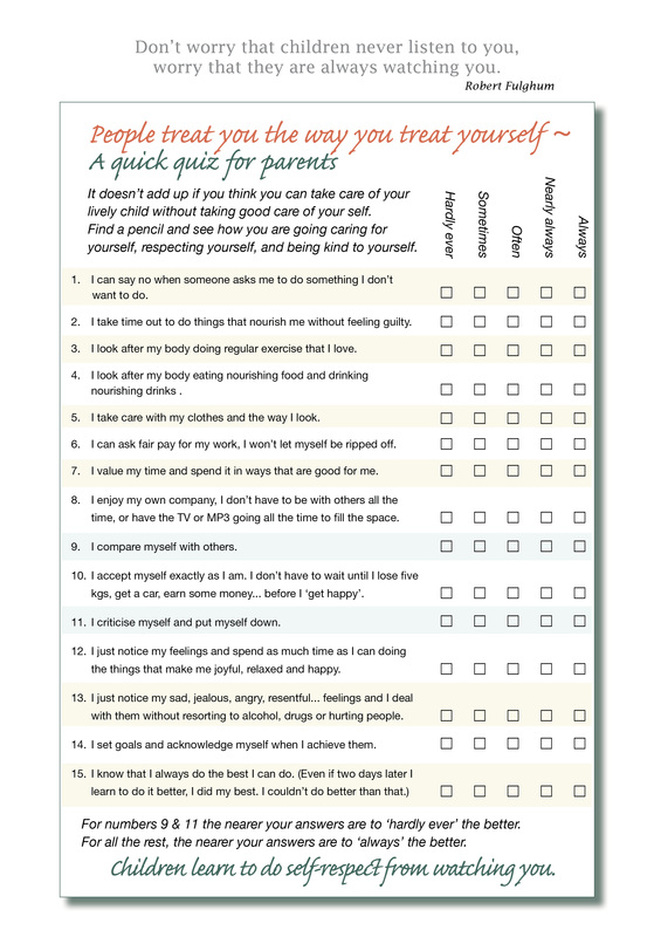
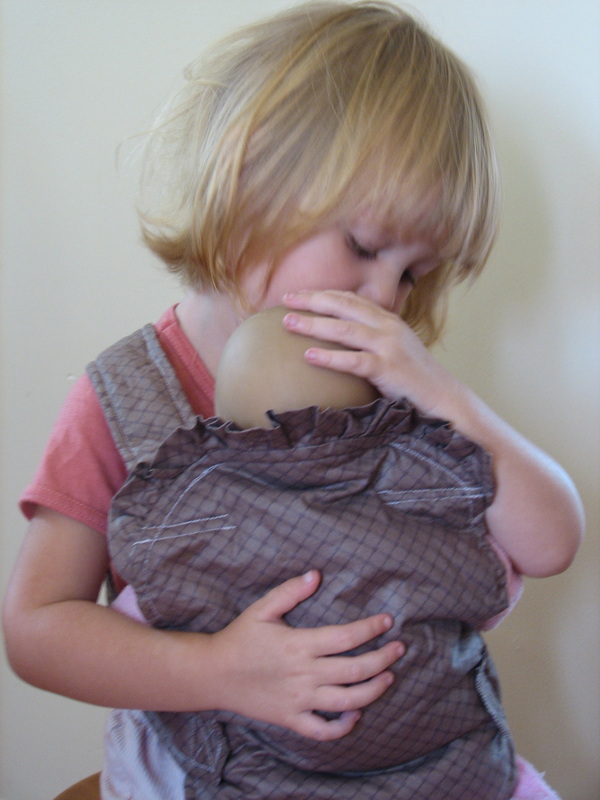
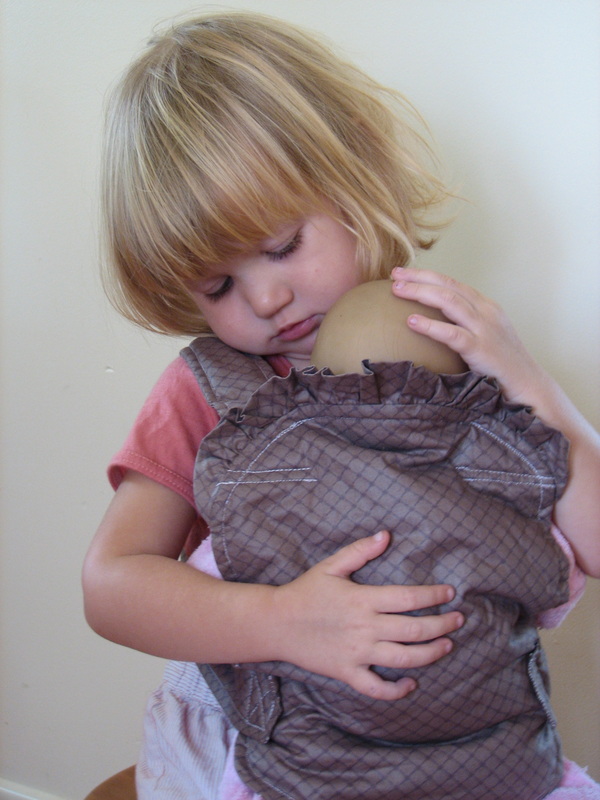
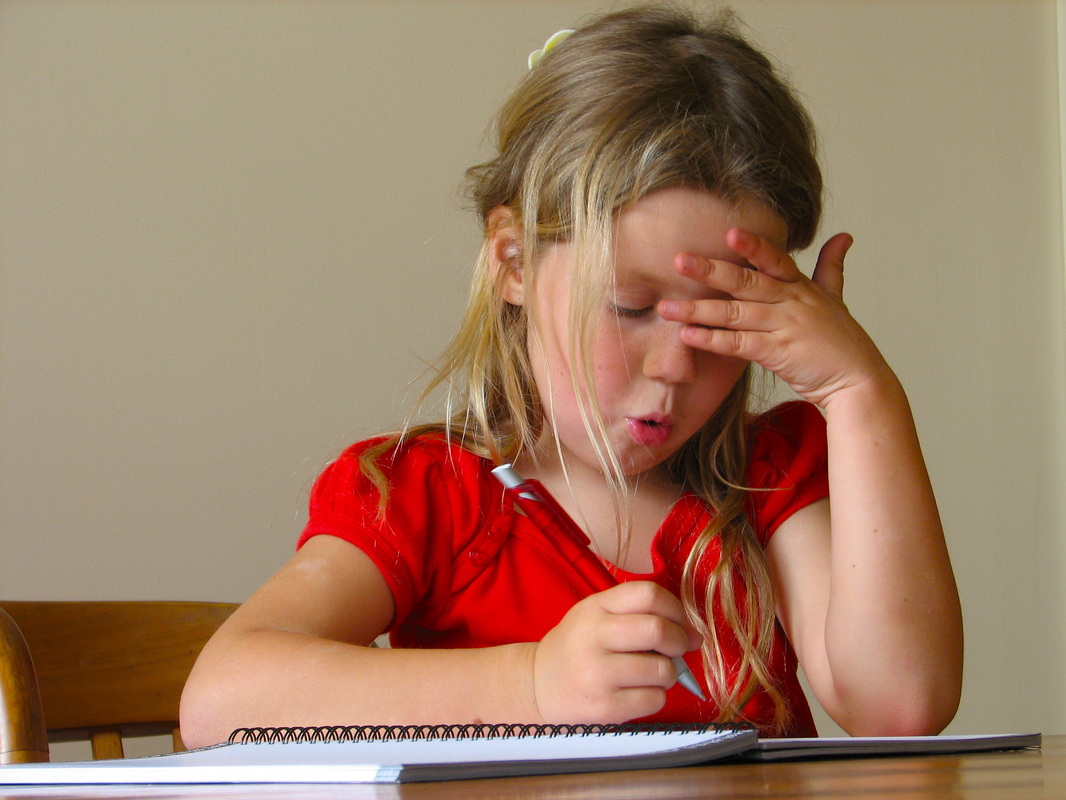
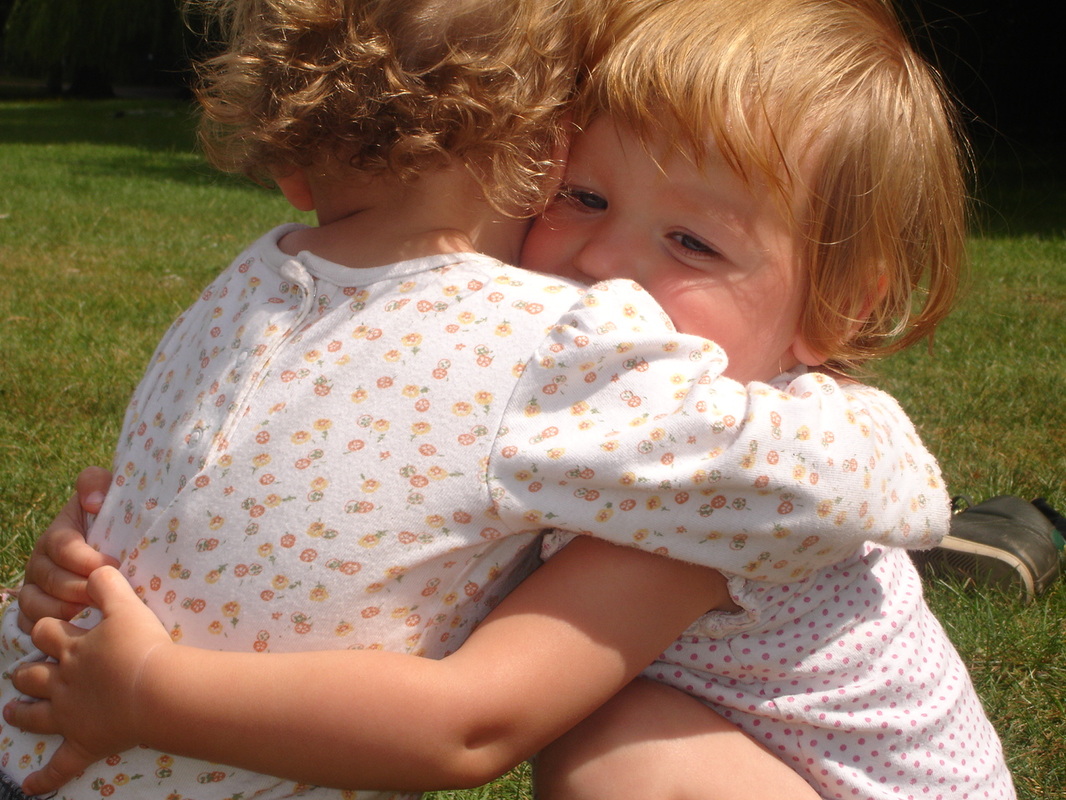
 RSS Feed
RSS Feed
